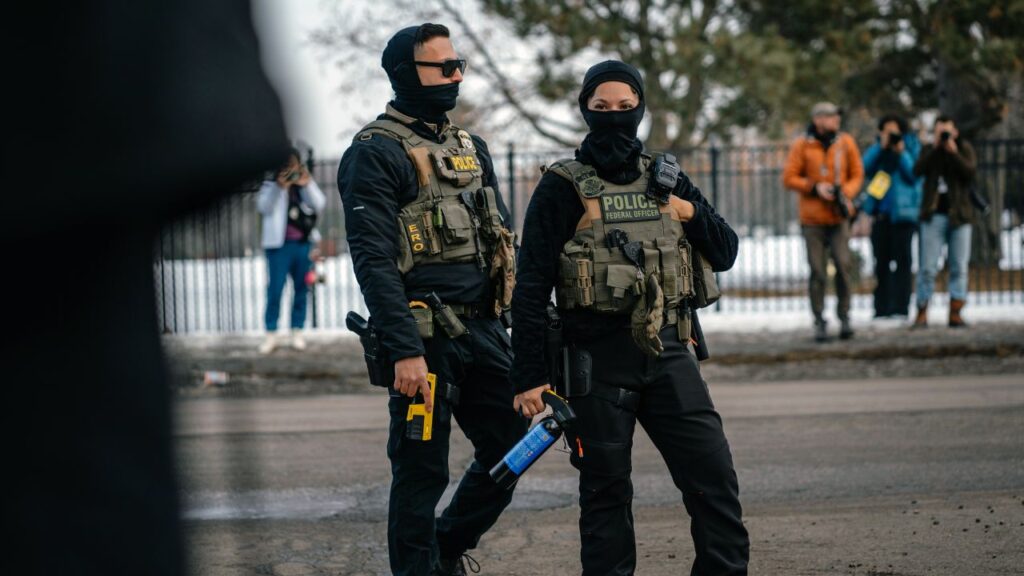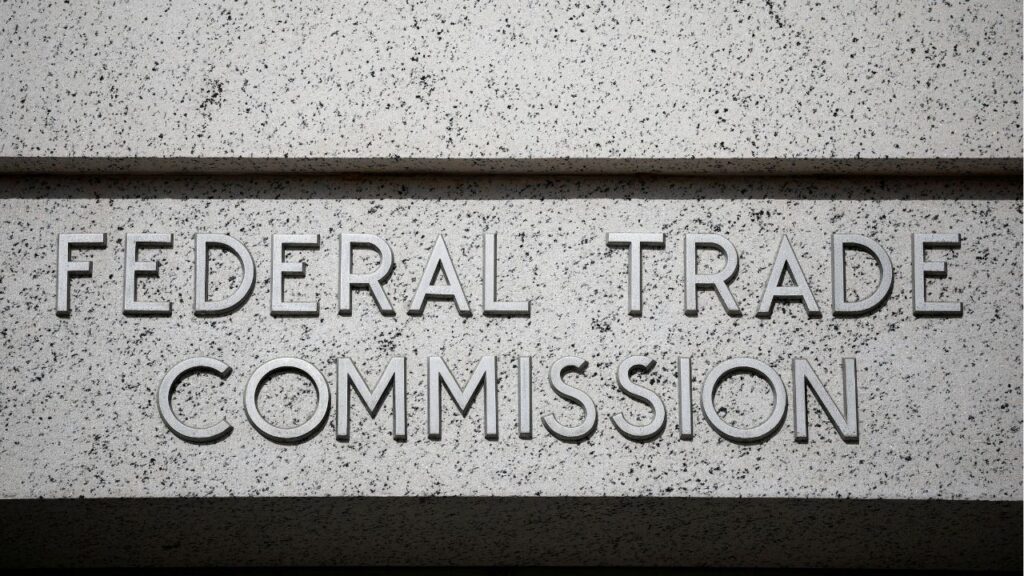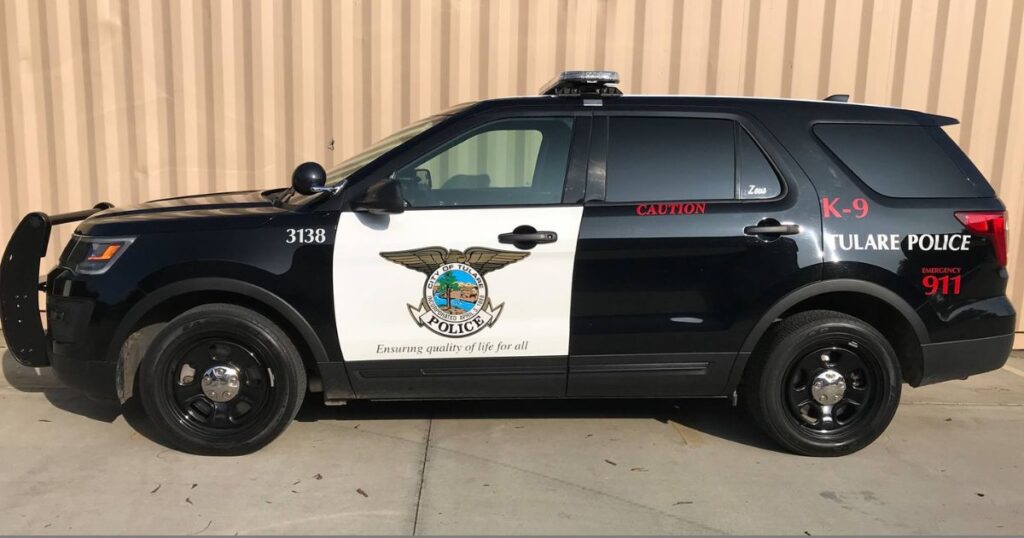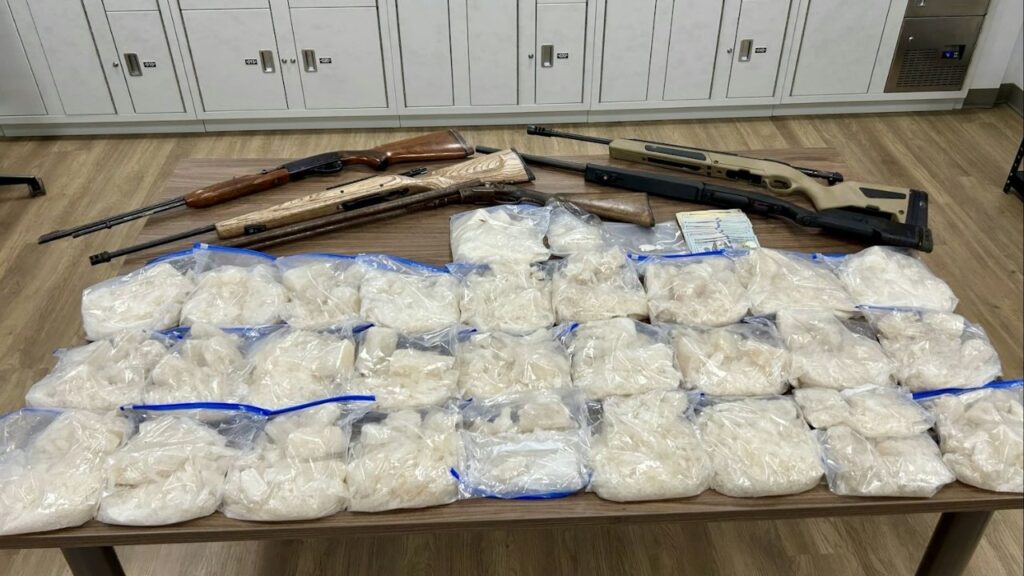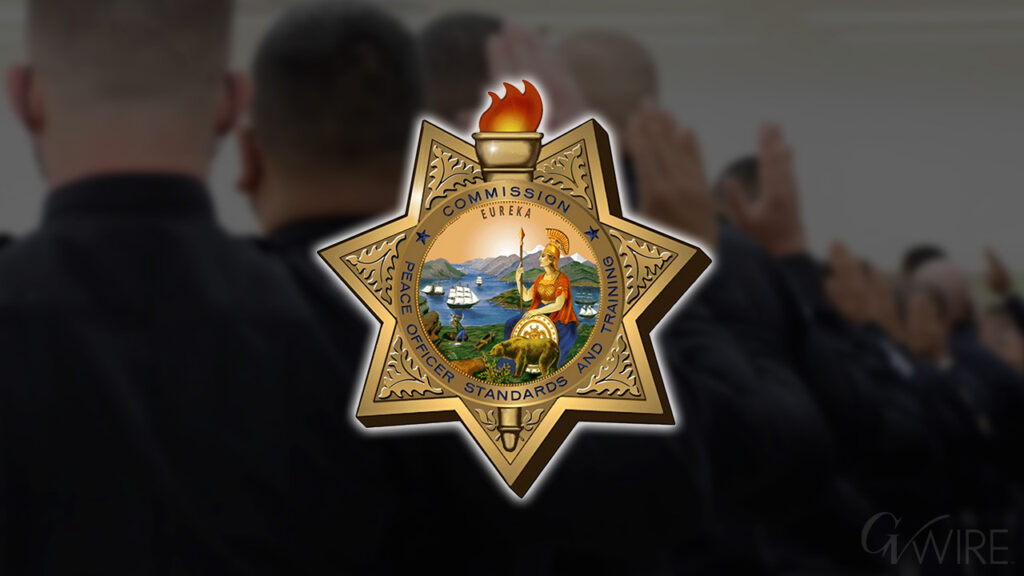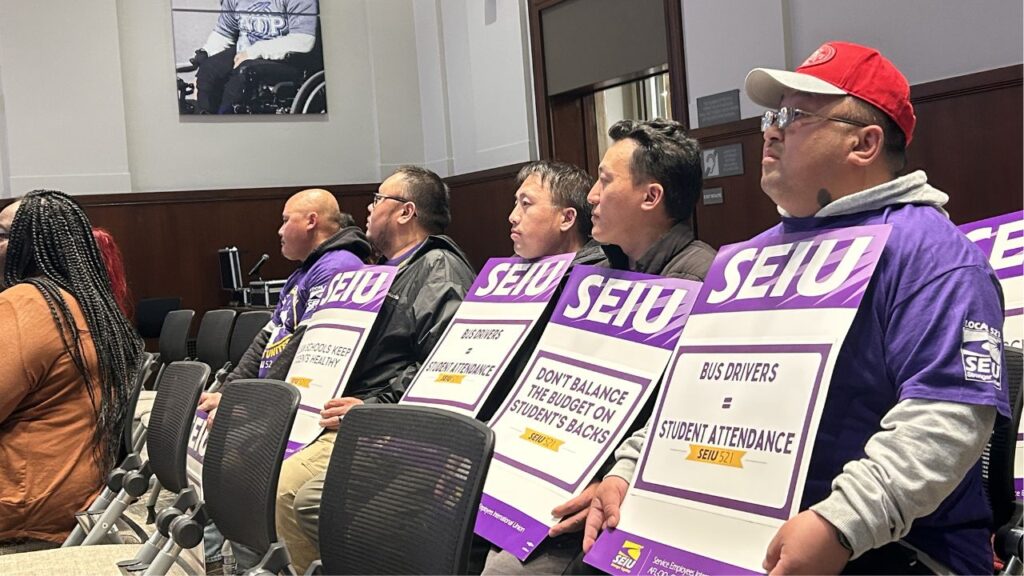Share
|
Getting your Trinity Audio player ready...
|
Fresno City Councilman Miguel Arias says smoke shops have become a blight on the city of Fresno. Three years ago, he said the same thing about liquor stores.
On Tuesday, Arias, along with Council Vice President Annalisa Perea and Councilman Nelson Esparza introduced a plan to reduce the number of smoke shops by 70%.
In October 2020, Arias, Esparza, and Councilman Luis Chavez got the Responsible Neighborhood Market Act approved.
Councilman Mike Karbassi was the lone “no” vote.
The RNMA forced prospective store owners to buy additional liquor licenses before opening and limited them to 1,000 feet apart from one another.
The ordinance had its successes, but also its drawbacks.
No new liquor stores have opened in saturated zip codes since it was passed. But Fresno’s problem liquor stores — those generating a high volume of police calls and loitering complaints — still are in operation.
Notably, the tools Fresno officials still use to regulate liquor stores existed long before RNMA.
The number of police calls to liquor stores indicates mixed results for RNMA in a sample of south Fresno liquor stores.
In addition, Arias, Chavez, and Esparza said RNMA would pave the way for grocery stores to open in food desert neighborhoods.
But only one grocery store, Aldi, has opened since then and it’s in northwest Fresno. Grocery store chain El Super is expected to come to Manchester Center in central Fresno.
Unlike RNMA, Fresno’s potential smoke shop ordinance would have a near-immediate effect on closing businesses. If the council approves the ordinance, hundreds of businesses city-wide would have to apply for the 14 spots.
But much like RNMA, it was governmental policy that created the problem in the first place.
Now, lawmakers will have to make sure the cure isn’t worse than the disease.
What Was the Responsible Neighborhood Market Act?
The RNMA forces prospective store owners wishing to sell alcoholic beverages to first buy an old license and retire it before they can open a new store. The cost for a Type 21 license — that allows spirits in addition to beer and wine — begins at $100,000 by some estimates.
The number of liquor licenses needed to retire grows as the size of the store grows — up to four are needed for the largest stores, including one to operate.
The ordinance also prohibits new liquor stores from opening within 1,000 feet of a school or another liquor store.
Lawmakers that said for neighborhoods saturated by liquor stores, RNMA would decrease blight and open the way for more grocery stores.
Detractors feared it would give those with valuable liquor licenses and locations a monopoly, further entrenching some of the very liquor stores the city wanted to move away from.
Has RNMA Closed Liquor Stores?
The California Department of Alcoholic Beverage Control limits the number of liquor licenses in a zip code to one per 2,500 residents, according to Bryce Avalos, spokesman for the ABC.
Local jurisdictions can only exceed that number if a public need can be demonstrated, Avalos said.
Both the city and county of Fresno approved liquor licenses on the idea it created jobs, Arias said.
“What people do not pay attention to was that was the after-effects of really bad public policy that approved every liquor license request on the logic that it created jobs,” Arias said.
In the 93706 zip code, the 41 alcohol licenses there amount to one per 999 people.
Since 2021, two alcohol licenses from convenience stores have been surrendered that didn’t become a license to sell liquor, according to data from the California ABC. One was from Shields Express at 1104 W. Shields Ave.
The other was the 7-Eleven at 2630 Tulare St.
When upgrading a Type 20 license — the license allowing beer and wine to be sold — to a Type 21, it has been common practice to retire the license, said George Beal, president of Beal Developments.
Ten licenses have been surrendered in total, including the two previously mentioned.
A 7-Eleven at 469 N. Clovis Ave. became Belmont Car Wash, with a Type-20 still active.
Two came from Target stores that expanded to selling liquor.
One from the Yosemite Market retired its own beer and wine license, upgrading to a Type 21, according to the owner. The owner said he spent $100,000 to go through the process.
Beal retired a beer and wine license at a Johnny Quik Food Store at Shaw and Blythe avenues that now sells liquor. The same happened with the Johnny Quik Food Store at Ashlan and Blythe owned by Paramveer Food & Fuel, Inc.
Two Type 21 licenses from a Rite Aid and a CVS were surrendered.

How Does RNMA Affect Grocery Store Openings?
One of the major criticisms of RNMA was the additional burdens it created to open grocery stores and neighborhood markets.
For example, the price of liquor licenses has increased since the ordinance’s passing — thus discouraging the opening of a neighborhood market with a small alcohol section. Beal said five years ago, a Type 21 license went for $40,000 to $50,000. Beal said the $100,000 the owner of Yosemite Market spent on his license was on the low end.
“I’ve offered $200,000. That’s why I know $200,000 isn’t going to get the job done,” Beal said.
Mike Lopez, CEO of Los Angeles-based Liquor License Agents, said the trend in convenience stores has been toward offering some sort of fresh produce or unique type of snack.
Alcohol sales supplement the addition of fresh produce at neighborhood markets, say brokers.
“If you’re there to buy food, you’d want to think that you could walk away with a bottle of wine or six-pack of beer or a bottle of booze if that’s what you wanted,” Lopez said.
To Arias’ point, he said grocery store operators look at the number of nearby convenience stores in their calculus of where to open. He said paying the additional cost for liquor licenses is not much for large grocery store chains.
“What we found over time was that a grocery store would actually not come into a neighborhood that had an oversaturation of liquor licenses because it would pull all the disposable income from the neighborhood out,” Arias said.
Two Dry 7-Elevens Have Opened Since RNMA
Convenience stores and neighborhood markets are integral to city planners’ visions for walkable neighborhoods. However, Arias disputes the brokers’ view that convenience stores need alcohol calling it a myth.
Two 7-Elevens have opened in the city that don’t sell alcohol of any kind. One opened at Tulare and Cedar avenues, across from Roosevelt High School. Another opened at Blackstone Avenue and Highway 180.
The 7-Eleven on Blackstone Avenue does sell salads, sandwiches, fruit, and vegetables.
“There’s no encampments out here,” said Arias. “If this was a liquor license, I guarantee you this would be full of encampments.”

Only One New Potential Grocery Store in South, Central Fresno
GV Wire research found one grocery store that opened since RNMA passed and another that is slated to open. That’s the Aldi at Shaw and West avenues.
Meanwhile, Trader Joe’s moved farther north, from Barstow and Blackstone avenues to Nees and Fresno avenues.
A liquor license posted in the window of the former Sears building near Manchester Center showed grocery store chain El Super coming to the shopping center.
However, Arias attributed RNMA as being one of the reasons why the owners of Valley Foods at Divisadero and Van Ness streets added groceries, even though the store opened before the passing of the rule.
City Had Many Tools in Place to Regulate Stores Before RNMA
The reason to reduce liquor stores came largely from issues such as drunkenness, excessive liquor signage, and repeated calls for police service.
Stores with alcohol licenses have to be approved by the city before they can open.
One complaint from Councilmember Mike Karbassi at the time was that RNMA did nothing to stop the sale of single-use liquor bottles. Liquor stores throughout Fresno still sell single cans of beer and small bottles of liquor.
Conditional Use Permits limit how much alcohol signage a business can display. Before RNMA, the city of Fresno at least once flexed its power to issue CUPs to bring more grocery-type products to a liquor store.
When owners of a liquor store at Clinton and Blythe avenues wanted to open with liquor sales, Planning and Development Department Director Jennifer Clark applied content and space requirements on the business, according to Nick Yovino, president of Infill 360 Planning and Development, who worked on the project.
In order to sell limited amounts of alcohol, the store owner agreed to dedicate a certain percentage of shelf space to healthy food.
Going after a store’s CUP can take three years, Arias said. But businesses don’t often want to lose a CUP because it reduces the value of the property, Arias said. That means a property owner may be more apt to act against a business in violation of the CUP.
Arias successfully got the 7-Eleven at 2630 Tulare St. to close down after multiple violations of its CUP. But, officials used existing city code to get the store to close.
Data Shows Mixed Results in Reducing Police Calls to Liquor Stores
GV Wire requested police and code enforcement reports on nine liquor stores in south and central Fresno. The Fresno Police Department returned complete data sets on seven liquor stores. Code enforcement returned data on all nine.
One included Circle K at 247 E. Olive Ave. in the Tower District, an example of a problem liquor store cited frequently by Arias.
The data shows that inspectors have only been to the Circle K once in the years since RNMA passed. However, calls for police service increased.
From 2019 to 2020, a total of 286 calls were made to police. From January 2021 to December 2022, calls increased to 363 in the two-year span.
Four of the seven liquor stores with complete data had decreases in calls for police service.
Smoke Shop Proposal
Fresno Code Enforcement teams may have to go door-to-door to make sure smoke shops apply for a CUP should the council approve the plan.
One smoke shop owner interviewed Tuesday by GV Wire did not know about the proposed ordinance. Employees at three other shops did not know either.
The city council is proposing a matrix of rules about permitted activities and signage at smoke shops. Unlike the hundreds and potentially thousands of liquor stores throughout Fresno, code enforcers will only have to inspect 14, should council members get their way.
GV Wire Reporter Anya Ellis contributed to the reporting of this story.




